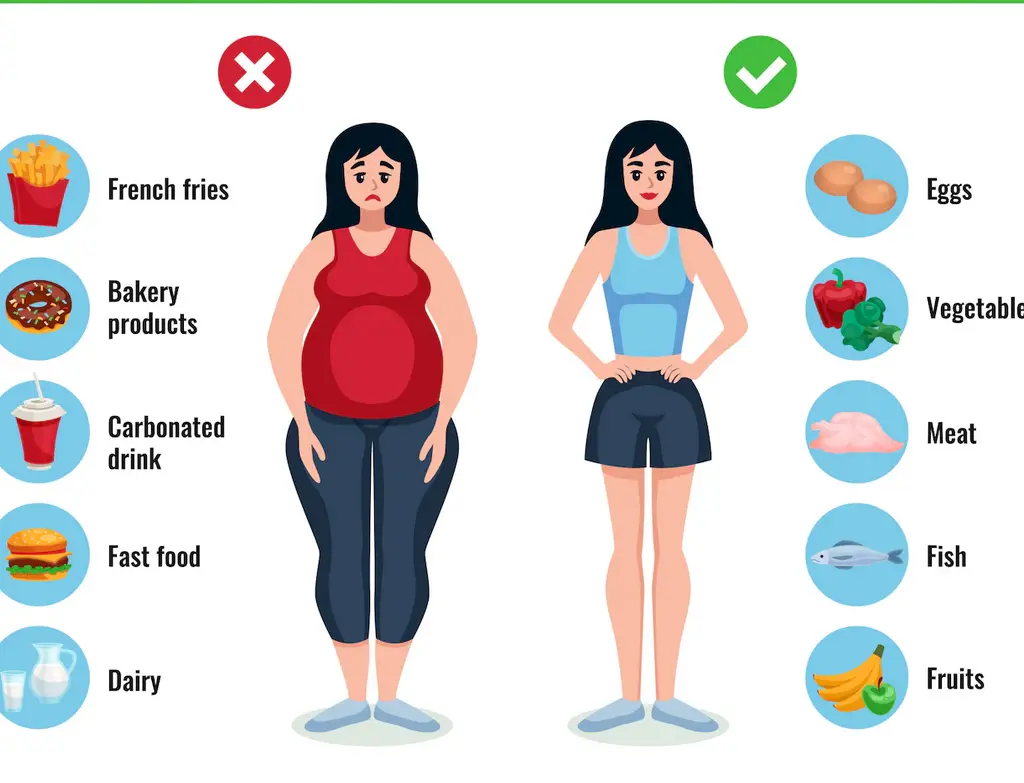Intermittent fasting has blown up in the last few years, with variations like the 16-8 fast, alternate day fasting, or even the 5:2 diet becoming household names.
While most of us know that IF has benefits like weight loss and increased insulin sensitivity, many people are hesitant to try it because they think they must fast every day or miss out on special occasions.
If you’re also worried about whether you can take a break from intermittent fasting on the weekends or if you’re dreading having to give up your favorite brunch spots, this article is for you.
While there are some great reasons why you should keep IF as a regular practice and not just a one-weekend-a-month thing, there are also good reasons why you might want to take a break from intermittent fasting on the weekends.
Related
So, Why Should You Keep Intermittent Fasting as a Regular Practice?

There are a few reasons why you might consider keeping IF as a regular practice:
1. Weight Loss
One of the most common reasons people try intermittent fasting is for weight loss. Research shows that intermittent fasting can be an effective weight loss strategy, especially when you combine it with a healthy diet.
While research shows that intermittent fasting can lead to more weight loss than a typical diet, only around half of the studies found that intermittent fasting led to more weight loss than a daily calorie-controlled diet.
2. Improved Health
Not only does IF lead to more weight loss than daily calorie restriction, but it can also improve your overall health.
3. Lower Blood Sugar
Intermittent fasting can improve the way your body processes sugar, which can lower your risk of developing diabetes and metabolic diseases.
4. Better Insulin Sensitivity
Intermittent fasting can help improve your insulin sensitivity, which can help with weight loss.
5. Better Heart Health
Intermittent fasting can help reduce levels of bad cholesterol (LDL) and increase levels of good cholesterol (HDL), which can lower your risk of developing heart disease.
6. More Energy
Many people report having more energy while fasting, with some attributing this to improved insulin sensitivity and blood sugar regulation.
Can You Take a Break from Intermittent Fasting on Weekends?
Should you only fast on certain days of the week? Or can you take a break from intermittent fasting on weekends?
According to experts, it depends on how strictly you’re following the plan and how much weight loss has already occurred.
“The best way to do it is to not allow any exceptions,” said Dr. Mike Roussell, Ph.D., RDN, an expert on intermittent fasting and nutrition. “If you are doing 16/8 or alternate-day fasting, then you don’t have to worry about eating on weekends.”
However, if you’re following the 5:2 diet, which means you fast two days a week and eat normally five days a week (or eat calorie-restricted), then it’s important to stick with the program for the entire week.
“If you’re doing 5:2 and want to do calorie restriction during the week — no more than 500 calories for women or 600 for men — then make sure you don’t go over those limits on weekends,” Roussell said. “It’s also not recommended that people try this plan if they are already lean.”
Reasons to Take a Break from Intermittent Fasting on the Weekends

While there are a few reasons why you might want to take a break from intermittent fasting on the weekends, there are also some reasons why you might want to make this a regular practice:
1. To Maintain Healthy Eating Habits
If you’re fasting regularly, you have to be mindful of what you’re eating each day. While this can be helpful in the long run, it can be harder to maintain healthy eating habits when you’re fasting regularly. When you’re not fasting, you can easily eat normally and maintain a healthy diet.
2. To Have More Energy
It’s common for people to report having more energy when they’re not fasting, especially when they get plenty of sleep during their non-fasting periods.
3. To Avoid Plateaus
Intermittent fasting is effective because it causes your metabolism to kickstart, and because of this, you may hit a plateau after a few weeks. If you take a break from fasting regularly, you can avoid this plateau and continue to make progress.
4. To Avoid Nutrient Deficiency
While it’s easier to avoid nutrient deficiency when you’re not fasting regularly, it’s still important to make sure you’re eating enough nutrients when you’re not fasting.
5. To Maintain a Healthy Weight
While intermittent fasting is effective for weight loss, it can be easier to maintain a healthy weight when you’re not fasting.
Reasons Why You Shouldn’t Take a Break from Intermittent Fasting on the Weekends

While there are a few reasons why you might want to take a break from intermittent fasting on the weekends, there are also some reasons why you might not want to make this a regular practice:
1. Your body needs time to adapt
Intermittent fasting is effective because it causes your metabolism to kickstart, and because of this, it can take some time for your body to adapt to this new routine.
While you can take a break from fasting on the weekends, your body won’t have much time to adapt if you’re fasting regularly.
2. You’re More Likely to Fall off the Wagon
While it’s easy to start fasting again if you’ve taken a break from it, it’s harder to get back on the wagon if you’ve been fasting regularly for a long time.
If you’ve been fasting regularly for a few months and decide you want to take a break from fasting on the weekends, it can be easy to fall back into old habits.
Bottom line
Intermittent fasting is a powerful strategy for many reasons. It allows the body to burn fat easier, promotes longevity, and boosts brain-derived neurotrophic factor (BDNF).
There are no set-in-stone rules to intermittent fasting. If taking a weekly break allows you to better stick to your fasts and stay on track, then maybe this is what you should do.
However, if it’s easier for you to just stick to the same fasting schedule every week, then this is what you should do instead. It all comes down to what works best for you.















